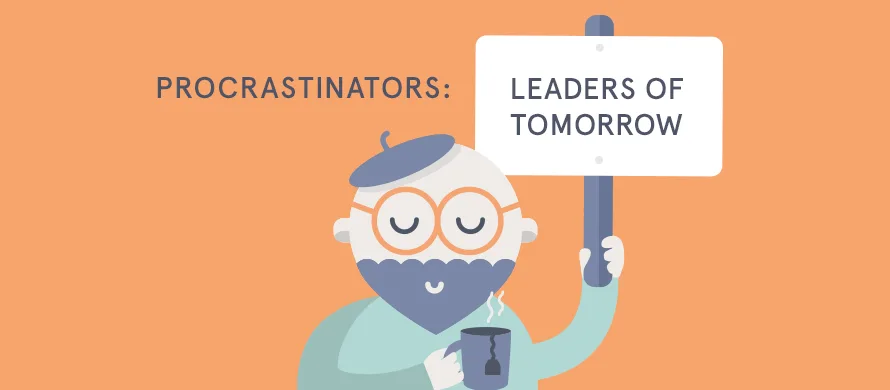Procrastinating? Read this. (Right now.)
Procrastination is an interesting topic, particularly in the context of the online world. Right now, as you read this, are you putting off something else? That next task at work, that paper you have to write, that tricky phone call you know you have to make? Did you somehow end up on this post on your way somewhere else? In which case, ok, indulge yourself just this once, and please do read on.
Procrastination is an interesting topic, particularly in the context of the online world. Right now, as you read this, are you putting off something else? That next task at work, that paper you have to write, that tricky phone call you know you have to make? Did you somehow end up on this post on your way somewhere else? In which case, ok, indulge yourself just this once, and please do read on.
But just consider: maybe one of the reasons that the internet has become so ubiquitous is that, as an enabler of procrastination, it knows no equal. It almost seems to mirror the behavior of a distracted mind. It’s constantly updated with lists, articles and facts all designed for your mind to quickly snack on before you move on to something else.
Of course, procrastination existed long before the internet. It’s hard to measure, (maybe they never got around to the research), but I think that from looking at our minds we can see that it’s pretty universal throughout the world and throughout history. Although the manner in which we waste time may have changed, the underlying impulse to do so is just as true as it ever was. Because it relates to a very fundamental idea – the desire to avoid suffering.
When I first joined the monastery we were invited to spend a month reflecting on the idea of suffering. Now, that might not be a very appetizing prospect, but one of the things that emerges from this practice is the sense that suffering is inevitable. It makes sense: no matter how happy our lives are, we are bound to encounter suffering sooner or later. It might sound like a rather gloomy thought, but actually it’s very liberating.
I’ll give you a small-scale example. Think about the physical discomfort you may experience from time-to-time when you meditate. There’s a tendency to shift around, looking for the most comfortable position. But, if you’re always moving around trying to avoid these feelings, you won’t ever get to experience real ease and rest. And if you’re always on the move, you’ll never learn that very often, if you just sit still a little longer, those feelings of discomfort will subside.
Fundamentally, that is the nature of thought and feeling. They are impossible to touch and sometimes hard to even locate. This is a roundabout route (as befits an article on procrastination) of saying that putting stuff off stems from this same desire to move away from suffering. But if you can accept that suffering is inevitable, putting it off starts to make much less sense. Of course, it’s one thing to think this, but another to actually experience it for yourself.
So I would urge you just to give it a try. Procrastination can come in so many forms: making a cup of coffee, checking social media, tidying up your house before you can start work. But if you can catch yourself at that moment, the split-second when you think of opening your browser, and just sit for a moment longer, you’ll often find the need to do so really subsides. This is one of the things that a meditation practice can help with, giving you enough perspective on your thoughts that, from time to time, you can try something new, rather than just operating on autopilot. Not acting on the impulse to procrastinate is relatively easy.You don’t need to exert effort, in fact, all you need to do is nothing.

If you can accept that suffering is inevitable, putting it off starts to make much less sense.
Headspace
If you can accept that suffering is inevitable, putting it off starts to make much less sense.
Headspace


Be kind to your mind
- Access the full library of 500+ meditations on everything from stress, to resilience, to compassion
- Put your mind to bed with sleep sounds, music, and wind-down exercises
- Make mindfulness a part of your daily routine with tension-releasing workouts, relaxing yoga, Focus music playlists, and more
Meditation and mindfulness for any mind, any mood, any goal

Stay in the loop
Be the first to get updates on our latest content, special offers, and new features.
By signing up, you’re agreeing to receive marketing emails from Headspace. You can unsubscribe at any time. For more details, check out our Privacy Policy.
- © 2025 Headspace Inc.
- Terms & conditions
- Privacy policy
- Consumer Health Data
- Your privacy choices
- CA Privacy Notice
